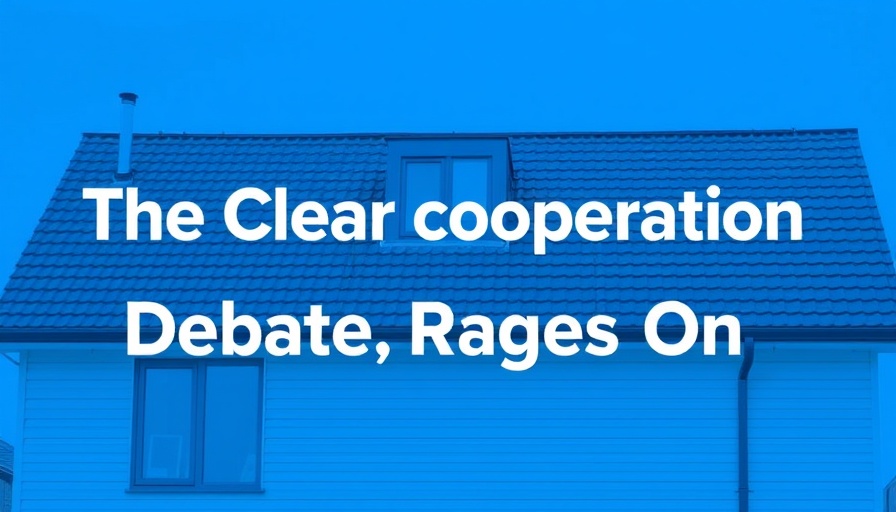
Understanding the Rise of Private Listings in Real Estate
The recent changes to the National Association of Realtors (NAR) policy have stirred significant debate in the real estate community, particularly regarding the introduction of private listings. This new option allows sellers to postpone broad marketing of their properties, potentially reshaping market dynamics in areas like Washington. Critics, including the Northwest Multiple Listing Service (NWMLS), are concerned that this change could exacerbate existing inequalities in real estate access.
What are Private Listings and Their Implications?
Private listings, which allow for exclusivity in viewing homes, have been controversial. Adam Reffkin, CEO of Compass—the real estate brokerage at the center of the storm—highlights how such listings could stigmatize homes in the eyes of buyers, making them seem less valuable. Critics argue that by limiting access to a select group of buyers and brokers, private listings would perpetuate discrimination against broader market participation.
The Local Context: NWMLS vs. Compass
NWMLS holds critical authority in determining how real estate is marketed within its jurisdiction. As it stands, owners in Washington who want to list their homes using the MLS are restricted from pre-marketing tactics. This has led Compass to argue that clients in the region are unfairly constrained, unlike owners in many other states who have the freedom to use alternative off-MLS marketing strategies.
The tension has reached peaks where major players in the market, including Windermere Real Estate, accuse Compass of creating a lopsided playing field. It’s worth noting that Windermere possesses six of NWMLS's 16 board seats, giving it an outsized influence over policy decisions that impact brokerage operations.
Industry Responses: Wider Implications for Market Equality
Following NWMLS's decision to pause its data-sharing agreement with Compass, the repercussions were immediate. Many brokerage firms, including Zillow and Redfin, have come out against private listings, indicating a concerted effort within the industry to maintain open access to properties. These companies have committed to ensuring that all listings are publicly visible within 24 hours of a marketing decision.
This resistance to private listings stems from a belief in maintaining transparency and fairness within the housing market, vital components for market equality. As pricing disparities can easily emerge from a lack of accessible listings, these organizations advocate for practices that deter exclusivity, which could negatively impact market dynamics.
Future Trends: What Lies Ahead?
The debate over private listings reflects broader trends in the housing market. As the real estate landscape continues to evolve, how these changes will affect Northwest Houston property markets remains to be seen. Investors and homebuyers alike must adapt to the shifting circumstances, emphasizing the importance of being well-informed about market regulations and listing options.
This paradigm shift calls for scrutiny from stakeholders, particularly as they consider how best to navigate the complexities of the housing market in a manner that supports equity and fairness.
 Add Row
Add Row  Add
Add 



 Add Row
Add Row  Add
Add 

Write A Comment